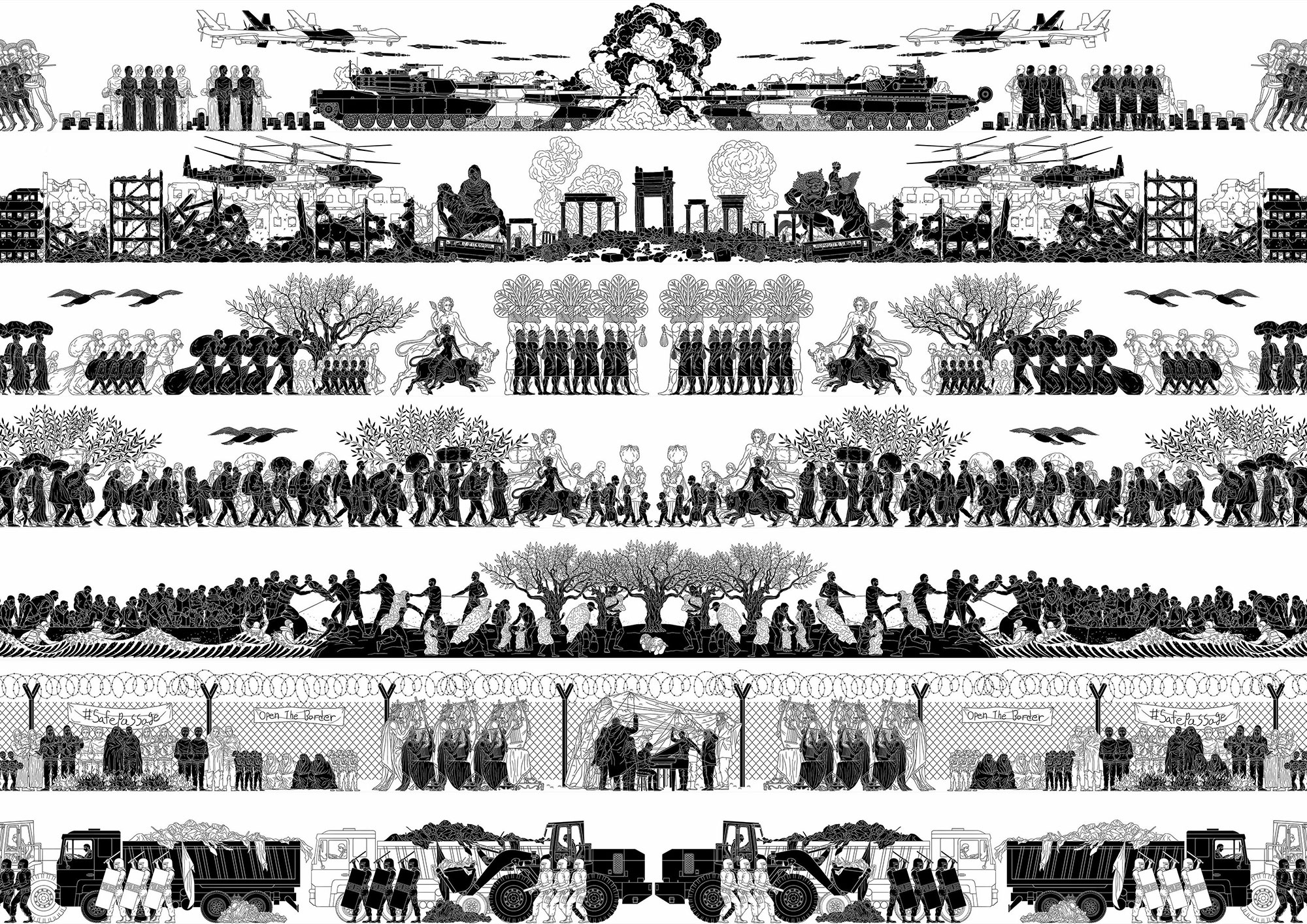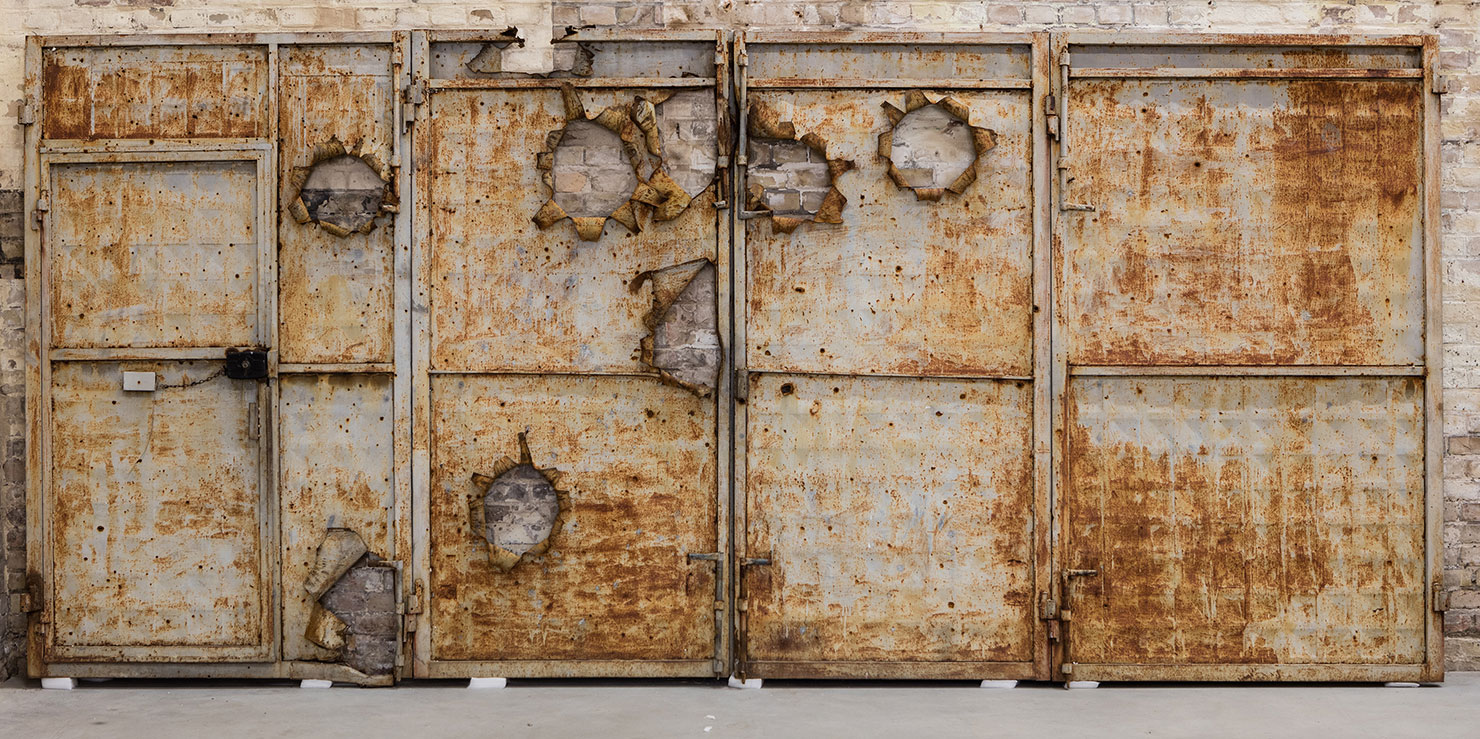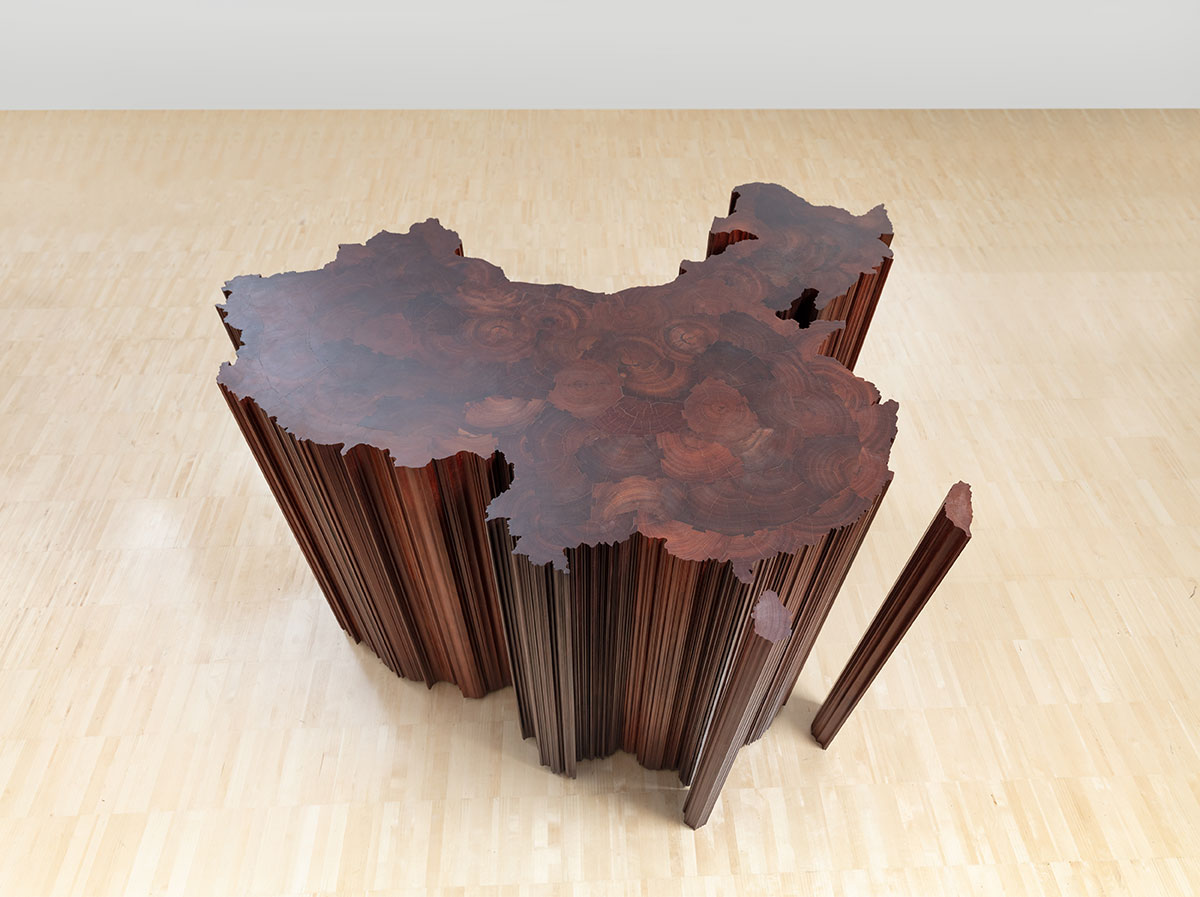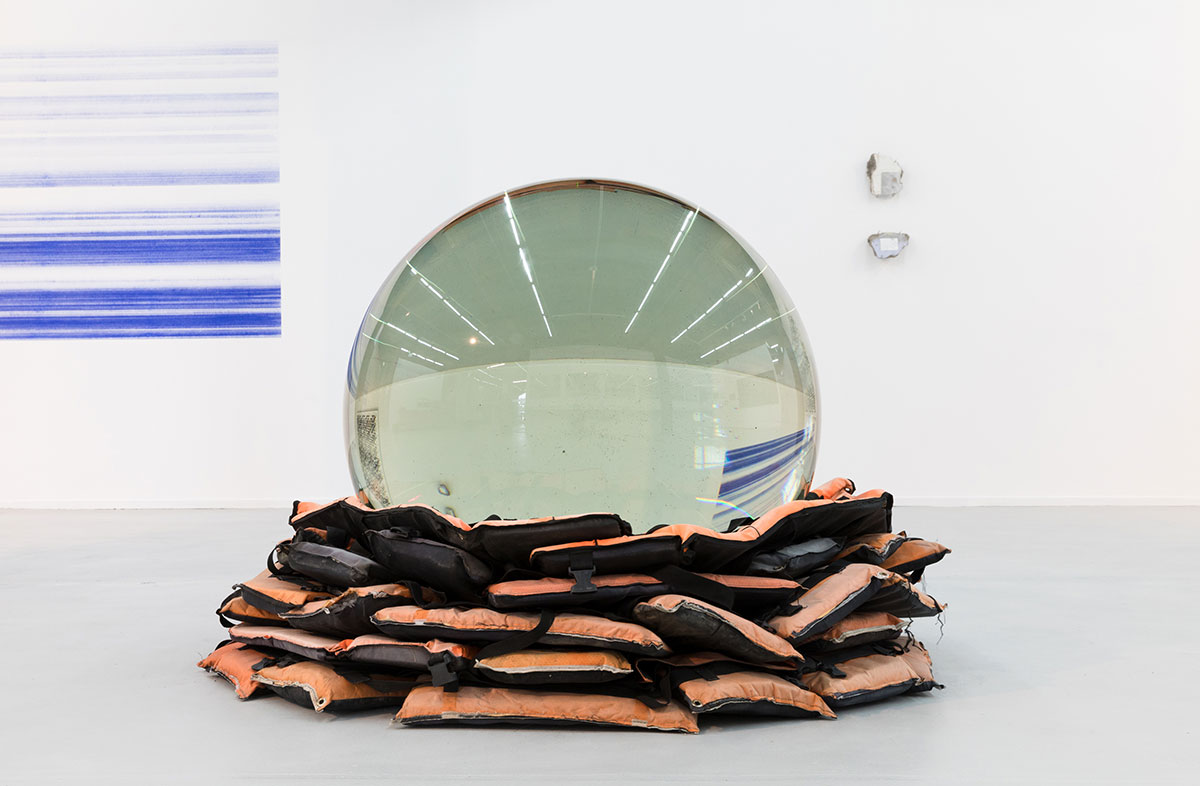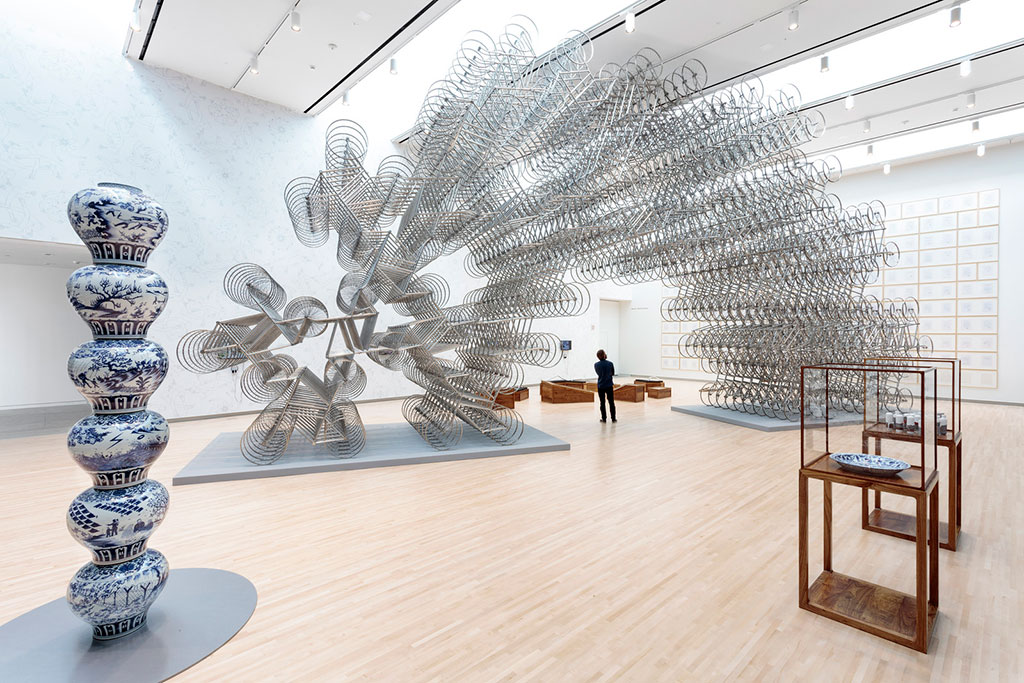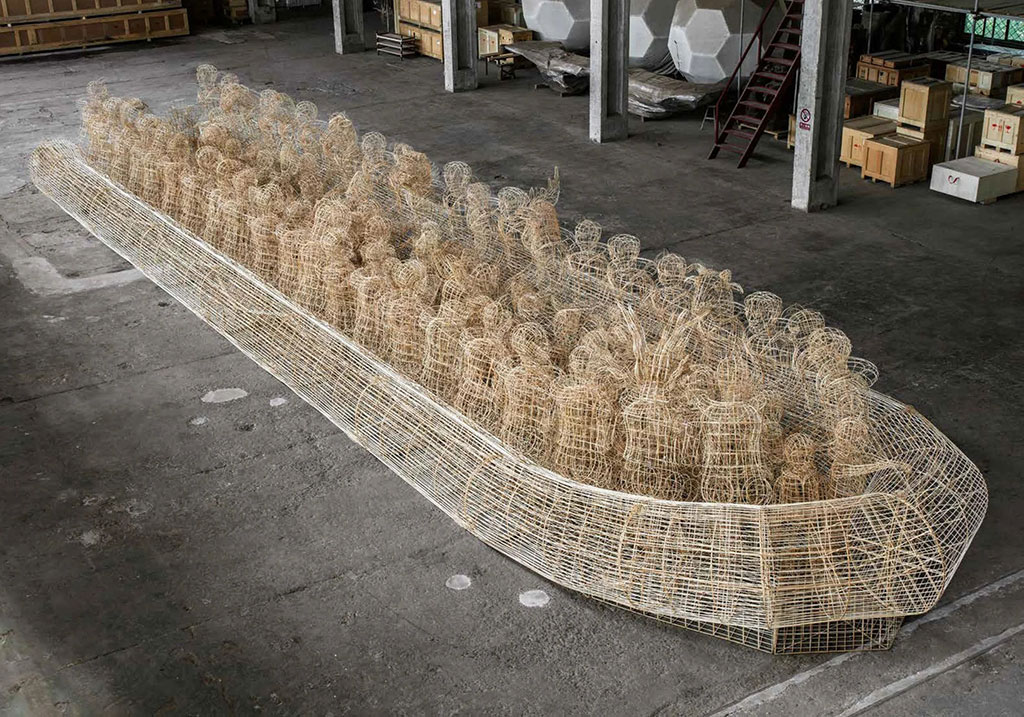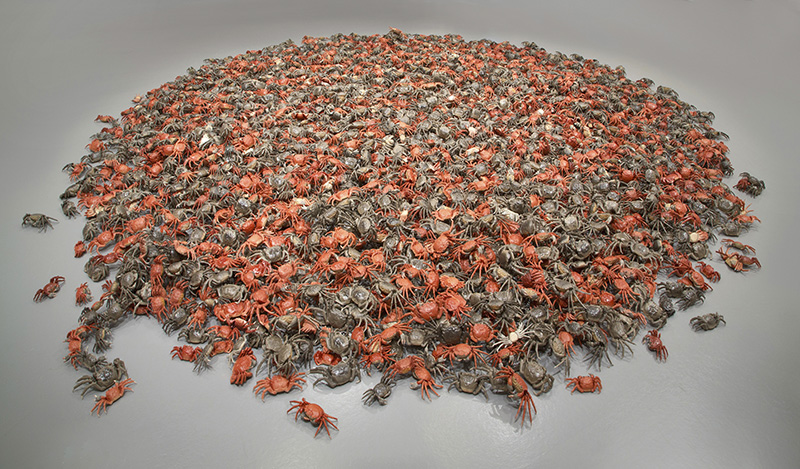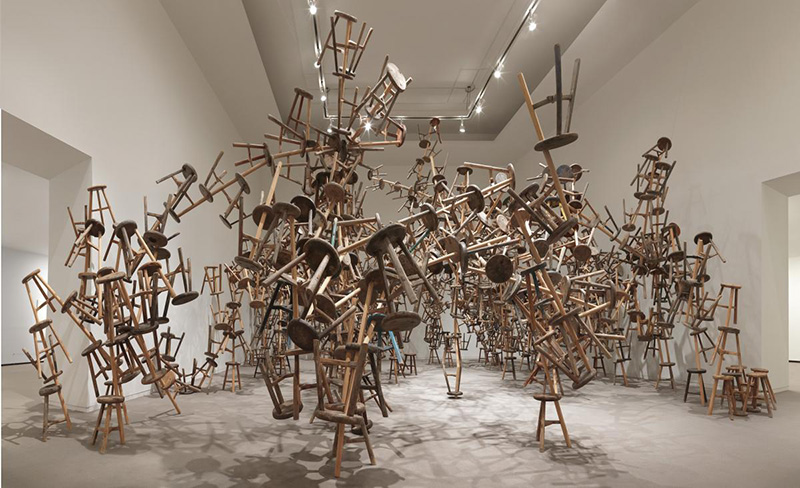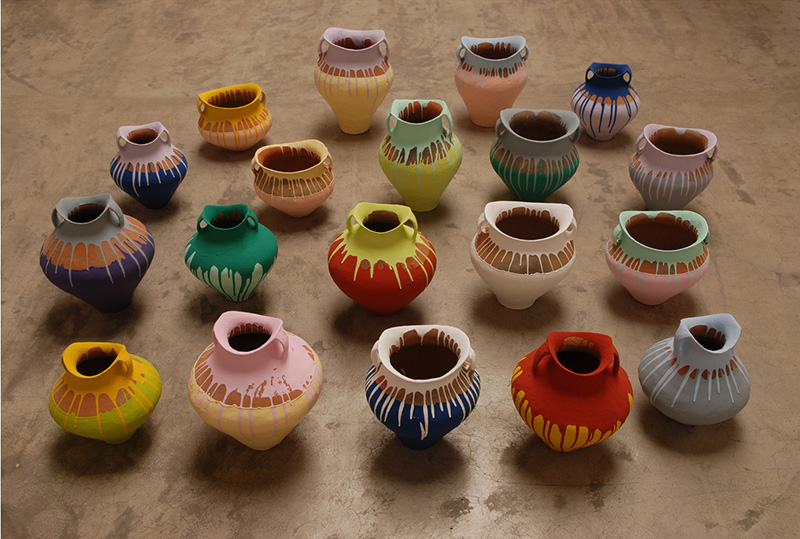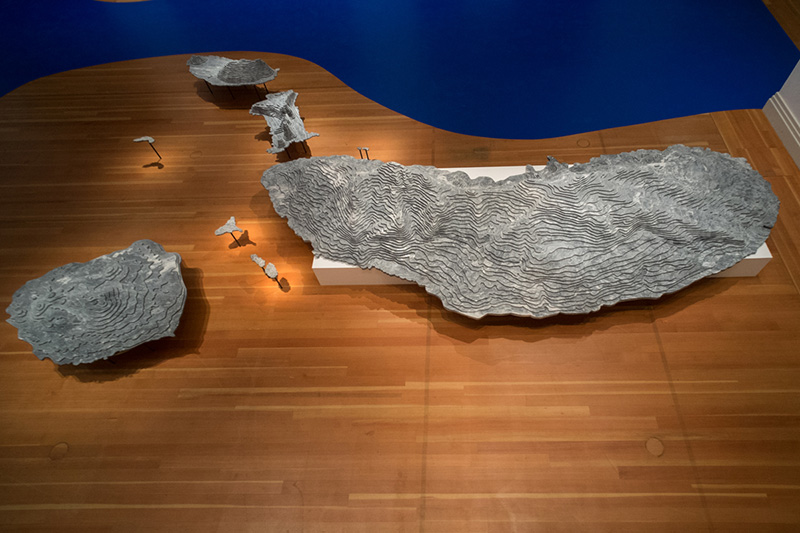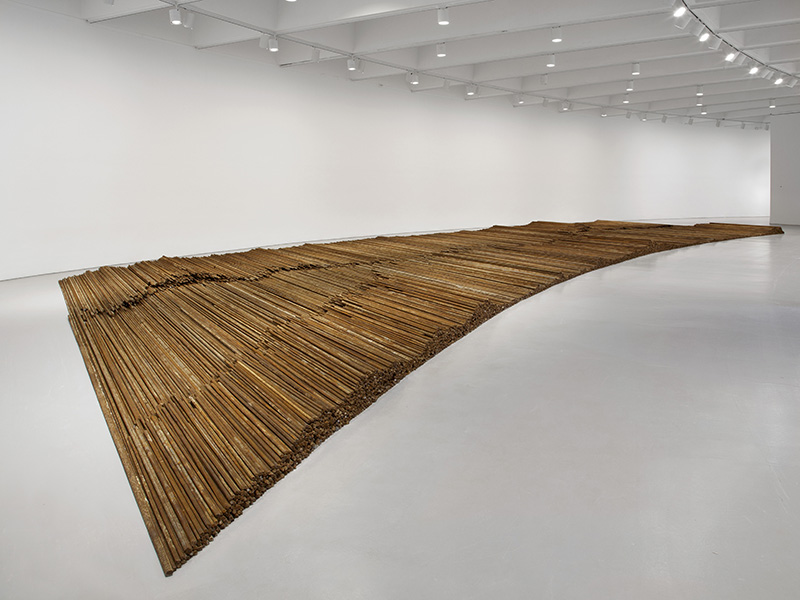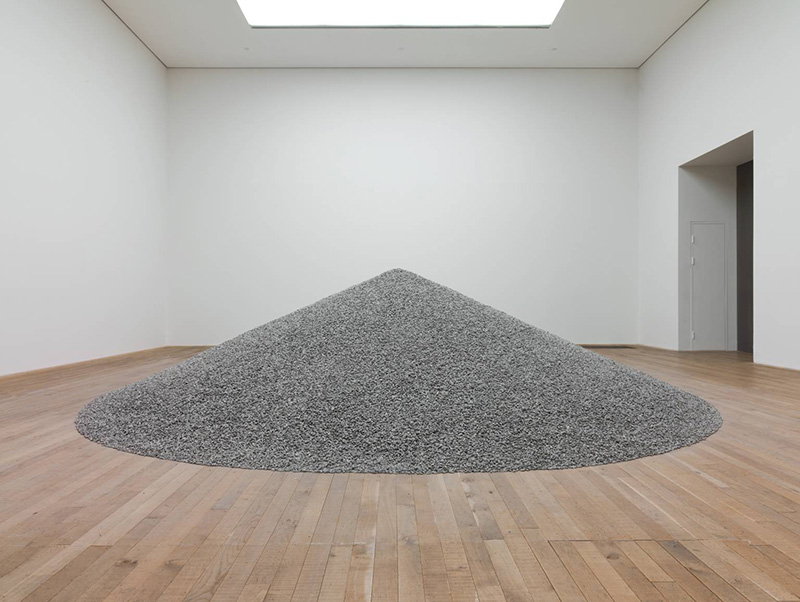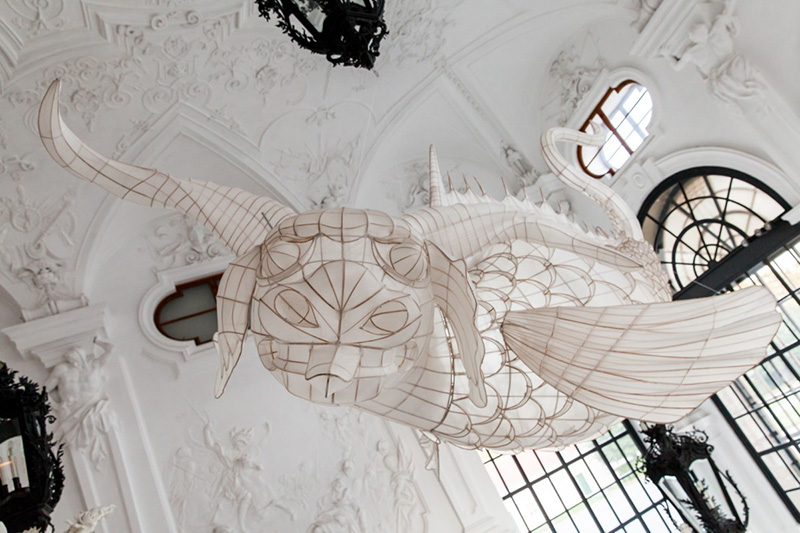TRACES: Ai Weiwei
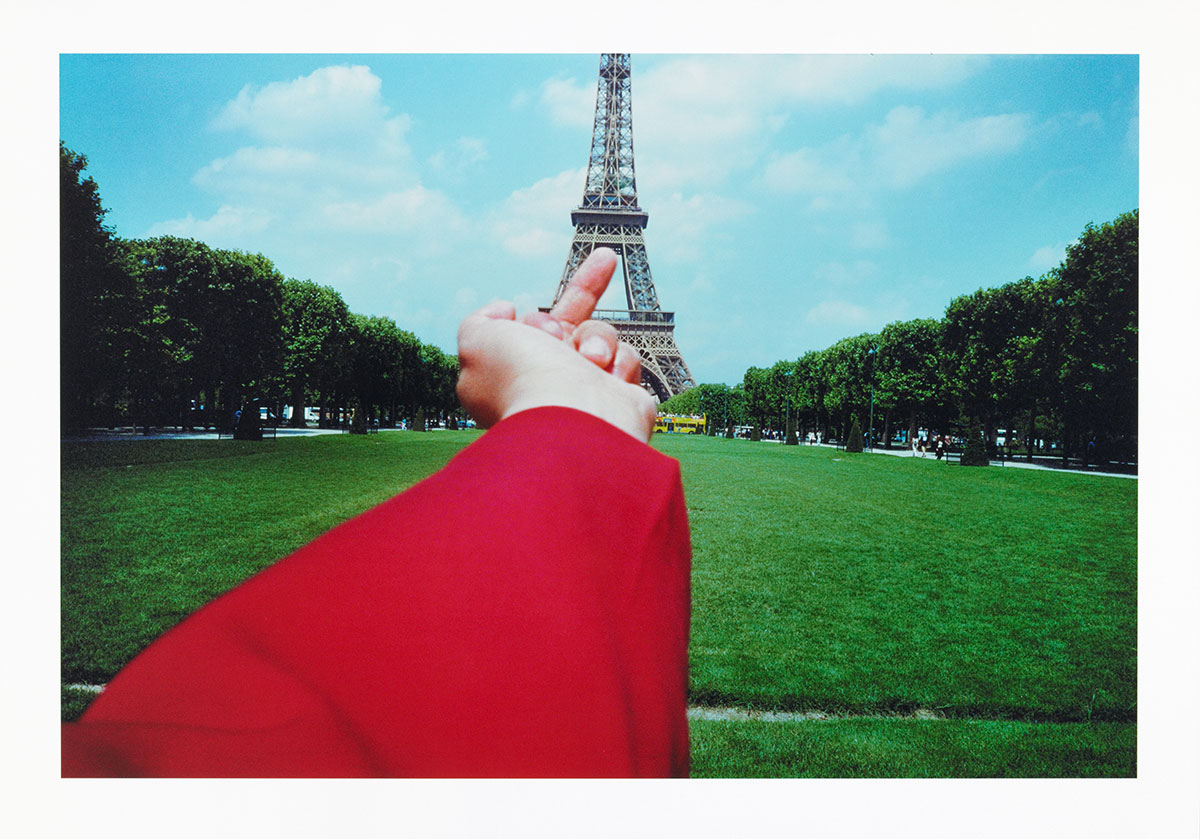 Ai Weiwei (28/8/1957- ) is an artist, architectural designer, curator, and social activist and perhaps the best-known Chinese Contemporary artist. His formal and analytical approach to creating new structures from ready-made and prefabricated objects leads the viewer to challenge traditional thinking about art and the role of the artist. From the particular relations between the basic architectural elements emerges a form dense or open, the understanding of which becomes the basis of endless conceptual perceptions.
Ai Weiwei (28/8/1957- ) is an artist, architectural designer, curator, and social activist and perhaps the best-known Chinese Contemporary artist. His formal and analytical approach to creating new structures from ready-made and prefabricated objects leads the viewer to challenge traditional thinking about art and the role of the artist. From the particular relations between the basic architectural elements emerges a form dense or open, the understanding of which becomes the basis of endless conceptual perceptions.
By Efi Michalarou
 Ai Weiwei’s father was Ai Qing, one of China’s most renowned poets and had been imprisoned by the Nationalist government before Ai’s birth on suspicion of being a Leftist. After the People’s Republic of China was founded, he was accused again, this time of being a Rightist and the family was exiled, before being allowed to return to Beijing in 1976, at the end of the Cultural Revolution. As a youth, Weiwei had become interested in art, and in 1978 he enrolled at the Beijing Film Academy, though he found more creative and intellectual stimulation as part of a collective of Avant-Garde artists called Xingxing. To escape the restrictions of Chinese society, he moved to the U.S.A. in 1981. Settling in New York City, he attended Parsons School of Design and actively engaged in the city’s fertile subculture of artists and bohemians. Although Ai initially focused on painting, he soon turned to sculpture, inspired by the ready-made works of Marcel Duchamp and Joseph Beuys. In 1993, he returned to Beijing. Exploring the fraught relationship of an increasingly modernized China to its cultural heritage, Ai began creating works that irrevocably transformed Chinese artifacts and pieces of Ming- and Qing-era furniture broken down and reassembled into various nonfunctional configurations. Between 1994 and 1997 he collaborated on three books that promoted Avant-Garde Chinese art that they were published outside official government channels. After building his own studio complex on the edge of Beijing in 1999, Ai turned toward architecture, and 4 years later he founded the design firm FAKE to realize his projects, which emphasized simplicity through the use of commonplace materials. An architectural notion of space later informed Ai’s “Fairytale” (2007), a Conceptual project that involved transporting 1,001 ordinary Chinese citizens to Kassel, Germany, to explore the city for the duration of the Documenta. In 2005 Ai was invited to write a blog for the Chinese Web portal Sina. Although he initially used the blog as a means of documenting the mundane aspects of his life, he soon found it a suitable forum for his often blunt criticism of the Chinese government. Furthermore, nearly a year after the 2008 Sichuan earthquake, in which shoddy construction was suspected to have been responsible for the deaths of thousands of children in collapsed public schools, Ai lambasted officials for not having released details on the fatalities and mobilized his growing readership to investigate. The blog was soon shut down, and Ai was placed under surveillance, among the artworks that resulted from Ai’s “citizen investigation” was “Remembering” (2009), an installation in Munich in which 9,000 coloured backpacks were arranged on a wall to form a quote, in Chinese, from an earthquake victim’s mother. Ai earned praise in 2010 for his installation, at the Tate Modern in London, of 100 million hand-painted porcelain “Sunflower seeds”, which were produced by some 1,600 Chinese artisans. In late 2010 Ai was notified that a studio complex in Shanghai that he had recently built at the invitation of the city’s mayor was scheduled to be razed. Though local authorities cited Ai’s failure to obtain a required permit as the reason for the demolition, Ai himself speculated that two documentary films he had made that suggested injustices on the part of Shanghai’s government may have been the underlying impetus. Ai was briefly placed under house arrest to prevent him from attending a party at the complex in November, and the site was demolished two months later. Also in November Ai launched another citizen investigation following a deadly fire in a Shanghai high-rise apartment building. In November 2011 Ai was levied with a tax bill of 15 million yuan. He contested the bill with the aid of private donations, but his final appeal was denied in court in September 2012, and shortly thereafter he announced that FAKE’s business license had been revoked.
Ai Weiwei’s father was Ai Qing, one of China’s most renowned poets and had been imprisoned by the Nationalist government before Ai’s birth on suspicion of being a Leftist. After the People’s Republic of China was founded, he was accused again, this time of being a Rightist and the family was exiled, before being allowed to return to Beijing in 1976, at the end of the Cultural Revolution. As a youth, Weiwei had become interested in art, and in 1978 he enrolled at the Beijing Film Academy, though he found more creative and intellectual stimulation as part of a collective of Avant-Garde artists called Xingxing. To escape the restrictions of Chinese society, he moved to the U.S.A. in 1981. Settling in New York City, he attended Parsons School of Design and actively engaged in the city’s fertile subculture of artists and bohemians. Although Ai initially focused on painting, he soon turned to sculpture, inspired by the ready-made works of Marcel Duchamp and Joseph Beuys. In 1993, he returned to Beijing. Exploring the fraught relationship of an increasingly modernized China to its cultural heritage, Ai began creating works that irrevocably transformed Chinese artifacts and pieces of Ming- and Qing-era furniture broken down and reassembled into various nonfunctional configurations. Between 1994 and 1997 he collaborated on three books that promoted Avant-Garde Chinese art that they were published outside official government channels. After building his own studio complex on the edge of Beijing in 1999, Ai turned toward architecture, and 4 years later he founded the design firm FAKE to realize his projects, which emphasized simplicity through the use of commonplace materials. An architectural notion of space later informed Ai’s “Fairytale” (2007), a Conceptual project that involved transporting 1,001 ordinary Chinese citizens to Kassel, Germany, to explore the city for the duration of the Documenta. In 2005 Ai was invited to write a blog for the Chinese Web portal Sina. Although he initially used the blog as a means of documenting the mundane aspects of his life, he soon found it a suitable forum for his often blunt criticism of the Chinese government. Furthermore, nearly a year after the 2008 Sichuan earthquake, in which shoddy construction was suspected to have been responsible for the deaths of thousands of children in collapsed public schools, Ai lambasted officials for not having released details on the fatalities and mobilized his growing readership to investigate. The blog was soon shut down, and Ai was placed under surveillance, among the artworks that resulted from Ai’s “citizen investigation” was “Remembering” (2009), an installation in Munich in which 9,000 coloured backpacks were arranged on a wall to form a quote, in Chinese, from an earthquake victim’s mother. Ai earned praise in 2010 for his installation, at the Tate Modern in London, of 100 million hand-painted porcelain “Sunflower seeds”, which were produced by some 1,600 Chinese artisans. In late 2010 Ai was notified that a studio complex in Shanghai that he had recently built at the invitation of the city’s mayor was scheduled to be razed. Though local authorities cited Ai’s failure to obtain a required permit as the reason for the demolition, Ai himself speculated that two documentary films he had made that suggested injustices on the part of Shanghai’s government may have been the underlying impetus. Ai was briefly placed under house arrest to prevent him from attending a party at the complex in November, and the site was demolished two months later. Also in November Ai launched another citizen investigation following a deadly fire in a Shanghai high-rise apartment building. In November 2011 Ai was levied with a tax bill of 15 million yuan. He contested the bill with the aid of private donations, but his final appeal was denied in court in September 2012, and shortly thereafter he announced that FAKE’s business license had been revoked.

